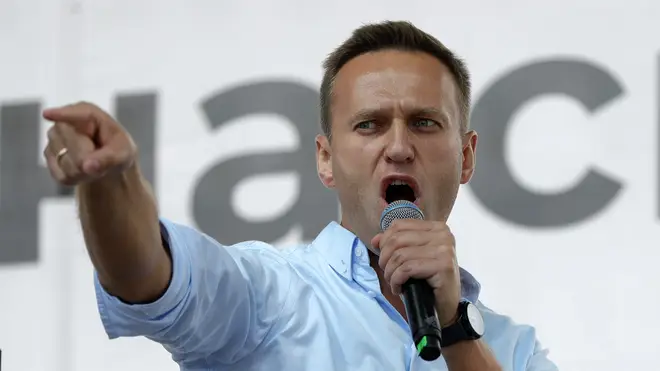
Richard Spurr 1am - 4am
7 September 2020, 12:34

German chemical weapons experts say Alexei Navalny was poisoned with a nerve agent, prompting the German government to demand that Russia investigate.
Chancellor Angela Merkel’s office has indicated she might be willing to rethink the fate of a German-Russian gas pipeline project in a sign of Berlin’s growing frustration at Moscow’s stonewalling over the poisoning of Alexei Navalny.
Mr Navalny, a fierce critic of Russian President Vladimir Putin, was flown to Germany on August 22, two days after falling ill on a domestic flight in Russia.
German chemical weapons experts say tests show the Russian opposition politician was poisoned with a Soviet-era nerve agent, prompting the German government last week to demand that Russia investigate the case.
Germany’s foreign minister Heiko Maas said in an interview on Sunday that the Russian reaction could determine whether Germany changes its long-standing backing of the Nord Stream 2 pipeline.

“The chancellor also believes that it’s wrong to rule anything out,” Mrs Merkel’s spokesman Steffen Seibert told reporters after being asked about Mr Maas’s comments.
Previously, Mrs Merkel had insisted on “decoupling” the Navalny case from the pipeline project, which the US strongly opposes.
In early August, three Republican senators threatened sanctions against the operator of a Baltic Sea port located in Mrs Merkel’s parliamentary constituency over its role as a staging post for ships involved in building Nord Stream 2.
Germany announced that samples taken from Mr Navalny showed clear evidence he was poisoned with substances from the Novichok group.
Mr Seibert cautioned that it was premature to expect Moscow to respond to the matter within a few days, but made clear Berlin wants answers soon.
“I can’t express a clear, time-limited expectation, except that we are certainly not talking about months or the end of the year,” he said.
Russia has denied that the Kremlin was involved in poisoning Mr Navalny and accused Germany of failing to provide evidence it requested in late August.